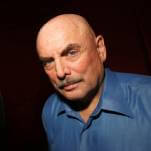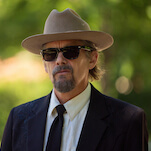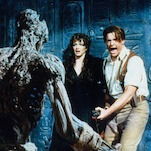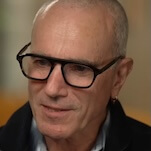Bonhoeffer

Even if he had lived in Iowa, German theologian Dietrich Bonhoeffer would have been considered one of the 20th century's most important religious thinkers, simply for his attempts to reclaim Christianity as a spiritual community, and to refocus virtue as an active duty rather than an obscure, innate quality. But history had an even more direct claim on him. Much of Bonhoeffer's thought can be seen as a reaction to the way Christianity began to mirror the rise of nationalism, particularly after WWI, when the differences between Catholics and Protestants began to matter less than, for example, the differences between German Christians and their French counterparts. Bonhoeffer died in a concentration camp shortly before the end of WWII, undone by what he fought against, but not before fighting back. Though his teachings raised Nazi suspicions, he was arrested for participating in a high-level (and nearly successful) attempt to kill Hitler. Bonhoeffer, a documentary by Martin Doblmeier, takes an overly familiar talking-heads-and-stock-footage approach to its subject, but it doesn't obscure the remarkable life it chronicles. Born to a none-too-religious family, Bonhoeffer decided to pursue theology, which eventually took him to America. There, he studied with activist and religious scholar Reinhold Niebuhr, and had his notion of religious community reshaped by Adam Clayton Powell Sr. and the black churches of Harlem. Returning to Germany, he took a hard-line pacifist approach. As he watched Hitler chip away at all that he valued, he struggled with the idea of making an exception to his virtues by attempting an assassination. In many respects, he was a virtuous exception himself—an exception from a period in which good chunks of German Christianity simply went along with the powers that were. Doblmeier doesn't have room to get into the details both of Bonhoeffer's ideas and of his life. His divided attention doesn't always serve Bonhoeffer well, but the documentary still works as an introduction to a thinker whose influence, as the passionate praise of Desmond Tutu attests, lasted far beyond his martyrdom.







































